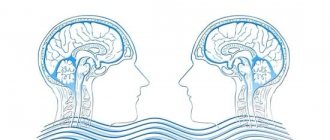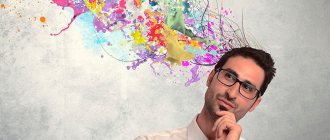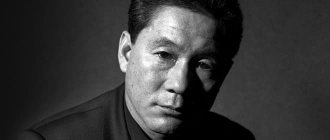In the eighteenth century, the writer P. Bobrykin introduced the word “intellectual” into use. The roots of the word itself come from the Latin “intellect”, which means mind. At that time, the intelligentsia included people who were engaged in mental work: writers, scientists, teachers, engineers and artists. More precisely, these were all those who did not work in the fields, workshops and mines. People engaged in mental work were distinguished by their education and were considered “white bones” among the masses of their kind. Is it appropriate today to confuse the concepts of “education” and “intelligence”? Does it mean that every educated person is necessarily intelligent, and vice versa?
What is intelligence?
Intelligence is a personality trait that is a combination of such traits as prudence, education, high culture of behavior, modesty and respect for others. Many people think that only a person with a higher education can be an intellectual, but this is not so. Education is only one of the elements of intelligence, but a person’s behavior in society plays a decisive role.
The term "intelligence" is derived from the Latin word "intelligentis", which translates as "reasonable" or "understanding". At the same time, it characterizes not a person’s mind, but his model of behavior in society, loyalty to his principles and the ability to maintain adequacy in any circumstances.
Intelligence has many manifestations, such as politeness, tact, modesty, tolerance, respect for other people, the ability to listen to your interlocutor, the ability to perceive another culture, the ability to empathize with others, rejoicing in their successes and sympathizing with their failures. At the same time, aggressive behavior, intolerance and conflict are not characteristic of an intelligent person.
In everyday life, the word “intelligence” is usually used to denote such personality traits as honesty, nobility, integrity, decency, tact and conscientiousness. At the same time, an intelligent person does not necessarily have to have an exceptional mind and a high level of education, and yet intellectual abilities correlate with intelligence.
Etymology of the word
“Intelligence” is a word that comes from Latin. Intelligentsia is a cognitive power, the ability of perception, which, in turn, comes from the Latin intellectus - understanding, thinking. Despite the Latin origin of the word, the concept of “intellectual” is considered originally Russian and in the vast majority of cases is used only in the territory of the former USSR and among Russian-speaking segments of the population.
The father of the term “intelligentsia” is considered to be the Russian liberalist writer Pyotr Bobrykin (1836-1921), who repeatedly used it in his critical articles, essays and novels. Initially, this was the name given to people of mental work: writers, artists and teachers, engineers and doctors. In those days there were very few such professions and people were grouped according to common interests.
Signs of intelligence
As we have already found out, high intelligence and level of education are not integral attributes of intelligence, although they often accompany it. At the same time, an intelligent person must have the following characteristics:
- the ability to appreciate works of art and other cultural assets accumulated by humanity;
- understanding of universal human values;
- a sense of social justice, the desire to protect the rights of an infringed individual or social group;
- honesty, conscientiousness and personal integrity;
- tolerance, tolerance, peacefulness and tact;
- the desire to resolve any conflict with words, the ability to compromise;
- ability to empathize, developed empathy;
- principled adherence to one’s own rules and principles, combined with tolerance for the mistakes of others.
How does intelligence manifest itself?
Intelligence is an indicator of how developed a person’s inner world is. Of course, it is associated with education and erudition, and yet these traits are not decisive. In fact, any person can be an intellectual, regardless of education and erudition, if he is conscientious, honest and kind to others, and devotes time to self-development and self-actualization.
Examples of displays of intelligence:
Understanding other people's motives. An intelligent person always strives to understand what another person is thinking about and what motivates him when making certain decisions and performing certain actions.
Demanding towards oneself, tolerance towards others. It is easy to notice that an intelligent person strictly monitors compliance with his own principles, but is understanding that other people may act differently.
Ability to behave in society. An intelligent person behaves modestly at the table, knows how to argue respectfully, does not throw garbage past the trash can, and monitors the cleanliness and literacy of his speech even in everyday life.
Tolerance. Intelligence implies a clear understanding that all people are equal and everyone has the right to self-expression, regardless of nationality, skin color, social status, gender, age, sexual orientation and other personal characteristics.
Internationalism. Almost all intellectuals are supporters of internationalism (an ideology that preaches friendship and cooperation between nations), and many even prefer cosmopolitanism (the concept that all people are citizens of the world).
When does the formation of moral qualities occur?
In order to be, or rather, to feel like an intellectual and not be burdened by this burden, it is necessary to absorb the inclinations with mother’s milk, to be brought up in the appropriate environment and environment, then highly moral behavior will be like a part of the being, like a hand or an eye.
It is for this reason that it is important not only to raise a child in the right direction, but also to set a clear example with rational actions, correct actions, and not just words.
What does "intelligentsia" mean?
The word “intelligentsia” refers to a community of people who are engaged in intellectual work, strive to accumulate knowledge and transfer it to other people. It is interesting that, although this is not explicitly stated, the intelligentsia includes mainly representatives of humanitarian professions: writers, poets, artists, literary critics, historians.
Representatives of the intelligentsia are characterized by a high level of morality and moral and ethical qualities. At the same time, they, regardless of the scale of their personality and degree of fame, strive to make the world a better place by passing on knowledge and beliefs, therefore they are often engaged in educational and teaching activities.
The most famous representatives of the Russian intelligentsia include such outstanding figures of science and art as Mikhail Lomonosov, Dmitry Mendeleev, Mikhail Lermontov, Leo Tolstoy, Mikhail Glinka and Pyotr Tchaikovsky. Each of them had a colossal influence on the science, literature or culture of their time. At the same time, they are usually classified as intelligentsia not because of their education or erudition, but because of their special view of the world and their persistent desire to make it better.
Who is an intelligent person?
“Cultural and not swearing,” many will say. Some will add: “Smart.” And then they’ll add something about being educated and well-read. But are all doctors of science and great minds of this world intellectuals?
There are enough people in the world with a huge amount of knowledge, who have read thousands of books, polyglots and true masters of their craft. Does this automatically make them part of the intelligentsia, the social stratum?
Is it possible to develop intelligence?
One of the best works on this topic is considered to be the article by the Soviet and Russian scientist Dmitry Sergeevich Likhachev “A person must be intelligent.” In it, he discusses whether any person can be intelligent, and also lists the basic requirements that must be met in order to develop this trait.
Likhachev notes that the ideal case is when intelligence is instilled in a child in childhood by his parents and other close relatives. And even ordinary workers or collective farmers can raise a future intellectual in their family. But even without this, any person , regardless of prerequisites, can cultivate intelligence in themselves , the main thing is to tirelessly work on themselves. This personality trait is determined not by the amount of knowledge, but by the desire to obtain it and develop it in general.
How to develop intelligence?
Intelligent people are not born. This personality trait is formed through upbringing and hard work on oneself. And every person, regardless of what prerequisites are laid down in him by temperament and upbringing, can become much more intelligent. To do this, you need to accept as your principles and strictly follow a few simple rules:
- Respect others. This is not just about those people with whom you have a business or work relationship. Be aware of how respectful and respectful you are towards your acquaintances, friends and family. This implies respect not only for the individual, but also for feelings, desires, problems and concerns. Remember to treat all strangers with respect, regardless of their social status, profession, level of education, appearance and other factors. Avoid familiarity and exclude any disparaging statements about other people.
- Behave modestly. Modesty is the main sign of an intelligent person. He does not create a fuss, behaves calmly and unobtrusively, does not interrupt his interlocutors and speaks only when he has something to say. He also does not try to attract the attention of others with too bright actions, does not brag or be frank in situations that are inappropriate for this.
- Never lie. To some, lying seems to be something ordinary and everyday, to others - a necessary measure, and others believe that they never lie, although they themselves often resort to hypocrisy and flattery, show off and tell tales about their successes. But a strong person who is in complete control of his life is able to avoid creating situations at all about which he would have to lie to anyone. Therefore, if it seems to you that you won’t be able to do without lying completely, perhaps you should work on other areas of your life.
- Help other people unselfishly. An intelligent person is always well disposed towards others. And the best “exercise” for developing benevolence is precisely selfless actions for the benefit of others. You don’t have to become a major philanthropist, just try to take part in a charity event or volunteer.
- Learn to appreciate beauty. An intellectual is not just an educated person, but one who knows how to appreciate the harmony of thought in prose and beautiful rhyme in poetry, grace in sculpture and the sophistication of images in painting. In order to feel the aesthetics of works of art, it is not at all necessary to be a professional art critic or artist. True beauty is always on the surface and accessible to everyone.
- Strive for inner freedom. An intellectual is a person who is free from many things that influence other people. He does not allow established stereotypes to influence his opinion, and puts his own morality above the morality imposed by society. He has well-developed critical thinking, thanks to which he behaves freely and independently in circumstances in which others demonstrate conformity.











